Expiration date and storage of washing powder
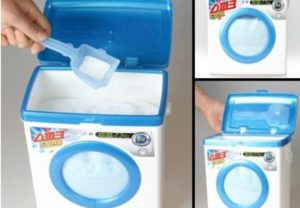 The opinion that washing powder can be used endlessly is fundamentally erroneous. Despite the chemical composition, the shelf life of the detergent is limited and directly depends on compliance with storage rules. If the granules are stored for too long or incorrectly, everything hardens and sticks together, which is why the chemistry loses its properties and releases substances hazardous to health. To prevent such a situation, it is worth understanding the “powder nuances”.
The opinion that washing powder can be used endlessly is fundamentally erroneous. Despite the chemical composition, the shelf life of the detergent is limited and directly depends on compliance with storage rules. If the granules are stored for too long or incorrectly, everything hardens and sticks together, which is why the chemistry loses its properties and releases substances hazardous to health. To prevent such a situation, it is worth understanding the “powder nuances”.
How long can the product be stored?
The date of manufacture and permissible shelf life must be written on each package or package. If there is no such record, then the manufacturer is extremely dishonest and is clearly violating the law on mandatory certification. It is categorically not recommended to purchase a “perpetual” product - there is no guarantee that all the other information on the packaging is not made up.
In general, the shelf life depends on the cleaning components included in the composition. Over time, the ability to remove stains wears off and the powder becomes useless. As a rule, this happens after 24 months, but some manufacturers promise high-quality washing for 5 years.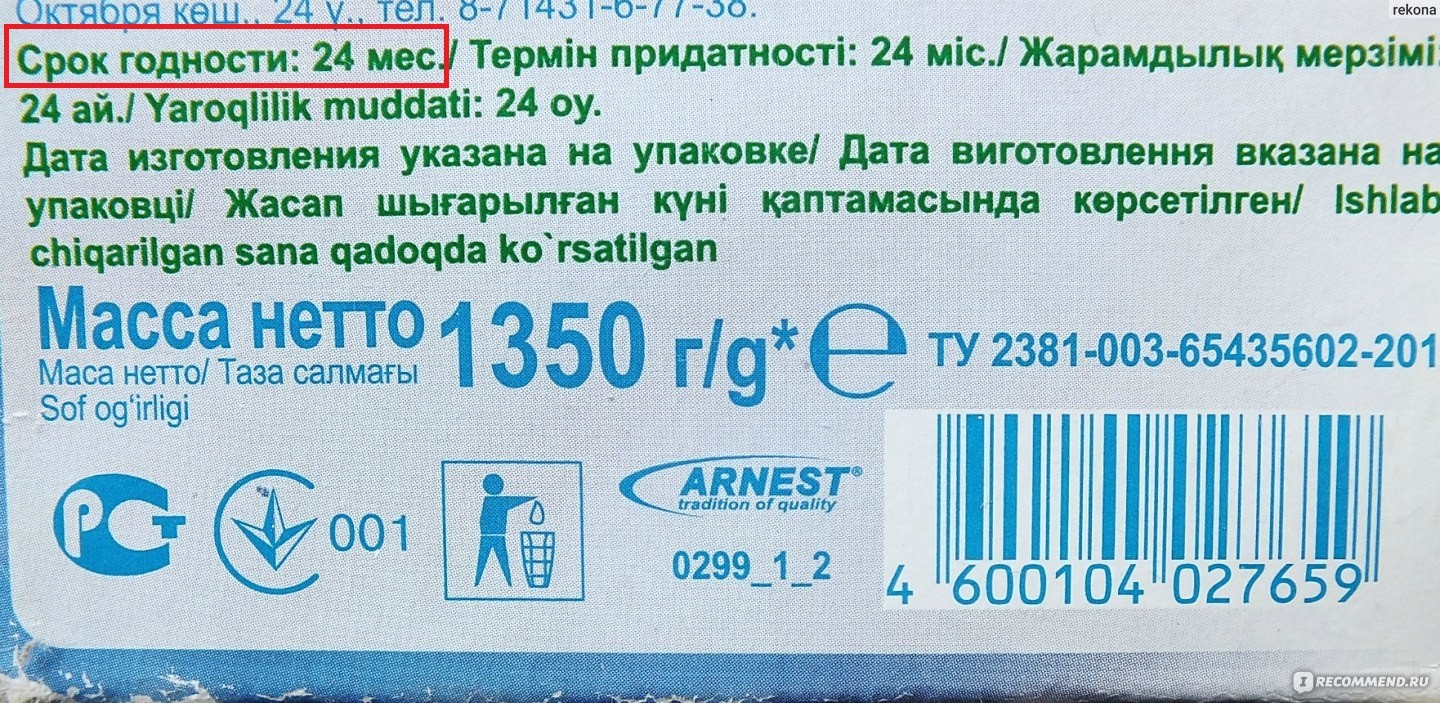
Baby laundry detergents consisting of grated soap have a shelf life of no more than 1 year.
You should not exceed the period specified by the manufacturers. Firstly, this will be of no use, since the quality of the powder deteriorates greatly. Secondly, “expired” particles begin to penetrate the packaging and negatively affect the health of the residents of the house.Categories of people who are sensitive to chemistry - children, asthmatics and allergy sufferers - suffer especially greatly, in whom a spoiled product provokes attacks and exacerbations of existing diseases.
How should the product be stored?
The expiration date indicated on the packaging is not the only indicator of the effectiveness and safety of the product. Often the powder becomes useless and harmful even before the “finish date” due to violation of the product’s operating conditions. Therefore, you should carefully approach the storage of chemical compounds. When choosing a place where and in what to store detergent, it is necessary to exclude the influence of three factors that destroy granules:
- High humidity. Dry powders strongly attract moisture, and the granules, when saturated with water, stick together and turn to stone. If it remains near the liquid for 24 hours, the product will become a monolithic block, which will make it difficult to use, forcing you to crush the stone into small pieces. Fortunately, the main cleaning components will not lose their strength due to moisture and can be used in the future.
- Heat. Chemistry may not react to sudden temperature changes, but a long stay near a heating riser, radiator, stove or heater will not pass without a trace. Due to strong and sustained heating, the internal structure of the active substances will collapse, and the powder will no longer remove dirt.
- Direct sunlight. Prolonged exposure to ultraviolet radiation will also lead to irreversible decomposition of chemical elements. Here the principle of operation is similar to heating from a battery: the sun will heat up the granules and reduce their effectiveness.

Opened packages with broken seals suffer the most.Open access to the powder allows moisture, heat and sunlight to quickly reach the components and have a stronger impact on their structure. The problem is eliminated in two ways - by choosing an ideal location or by using a reliable protective shell.
Where to hide the powder?
More often, the easiest and most affordable option is chosen - to hide the powder from water, heat and sun. But in reality it turns out that finding such a place is extremely problematic. Especially if, in search of profit, you purchase an economical but bulky package of 6-9 kg. The situation is aggravated by the lack of a separate pantry or closet.
But you need to choose a place for storage, so we start looking for the most suitable place. You should follow the following recommendations:
- We think about children and animals. First of all, we exclude easily accessible places where a small child or pet could get hold of dangerous chemicals. It must be remembered that a plastic bag or cardboard pack is easily torn by teeth, crumbles and tastes. Every thinking person knows about the possible consequences of such an experiment for the life and health of a growing organism.
- We exclude the kitchen. Ideally, it is better not to consider residential premises at all. Toxic substances can penetrate into the air even from completely sealed packaging, after which they remain on food, furniture, clothing, floor and wall coverings. In a logical way, dangerous components penetrate the body, gradually accumulating and causing intoxication.
- We are looking for a closed shelf or cabinet. Sun rays should not penetrate through the walls. It is better if the doors are closed with a magnetic lock.
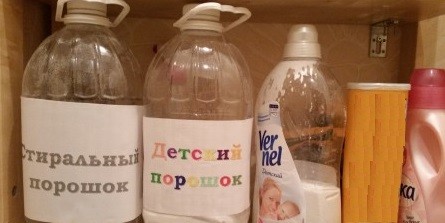
- We avoid the bathroom. The problem is high humidity.
- Let's keep our distance.Household chemicals are always stored separately. Placing powders, baby clothes, towels, washcloths, dishes in one drawer is strictly prohibited!
- Don't forget about batteries. The farther the detergent is from the battery, the longer it will serve its owners.
- We don't go far. Running across the entire apartment every time you do laundry is an unenviable and potentially dangerous prospect. Therefore, we immediately narrow the search field and look for a place not far from the washing machine.
Doubts often arise as to whether laundry detergent can be stored in the cold. For example, an indoor balcony is considered as an option during the cold season. Here the answer is ambiguous: on the one hand, the powder will not be damaged by minus temperatures and sudden temperature changes, but on the other hand, it will take a long time to carry it to the washing machine.
Special packaging for powder
If there is no suitable place on the balcony or in the bathroom, and there is a high probability that the powder will not live for the measured two years, we act differently. We purchase a special protective container and place it in any free place. There is no need to be afraid of dangerous consequences - such buckets have a lot of advantages.
- Tightness. Due to the tight-fitting lid, there is no possibility of spillage or moisture getting inside.
- Safety. The lid has a special locking mechanism that cannot be opened by small children or pets.
- Special material. Safety and tightness are guaranteed by particularly durable material. It does not allow moisture, light and heat to penetrate inside, and the washing mixture does not lose its bleaching properties.
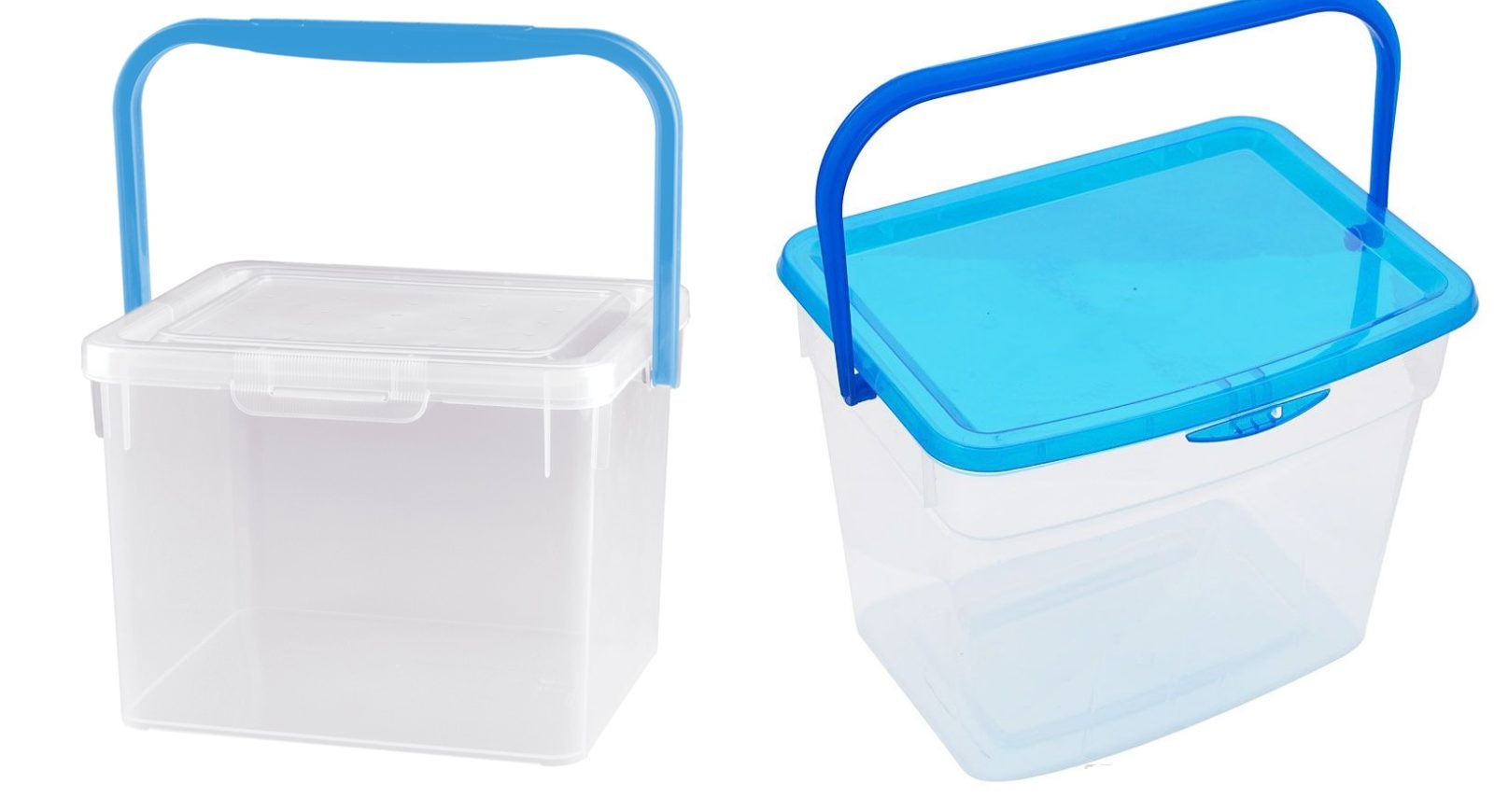
- Practical volume. The assortment offered by the modern market helps you choose the most suitable box shape.The most popular are 5-8 liter containers, elongated 52-60 cm in height and having a narrow width of up to 30 cm. Such dimensions make it easy to place the powder next to the washing machine or slide it under the sink.
- Convenient add-ons. Carrying handles, side recesses, a pouring spout, a measuring cup - all this allows you to conveniently use the container without spilling the washing mixture and moving it freely around the apartment.
- Availability. You can find a protective case for detergent at almost any retail outlet.
There will be no difficulties in choosing a shade and print that suits the interior.
There are also cheaper options - put the opened package of powder in a tightly tied bag or clamp the hole with a clothespin. The main thing is that the idea adopted protects the laundry mixture from an unfavorable environment. Otherwise, there will be neither washed clothes nor a high-quality and safe detergent.
Interesting:
Reader comments
- Share your opinion - leave a comment

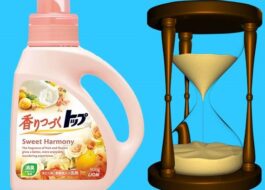
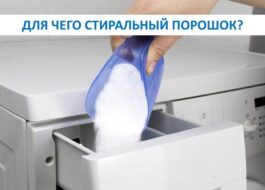
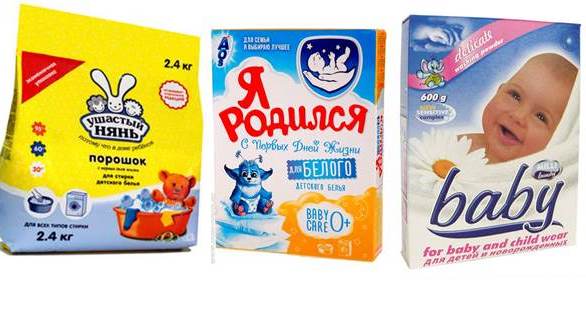

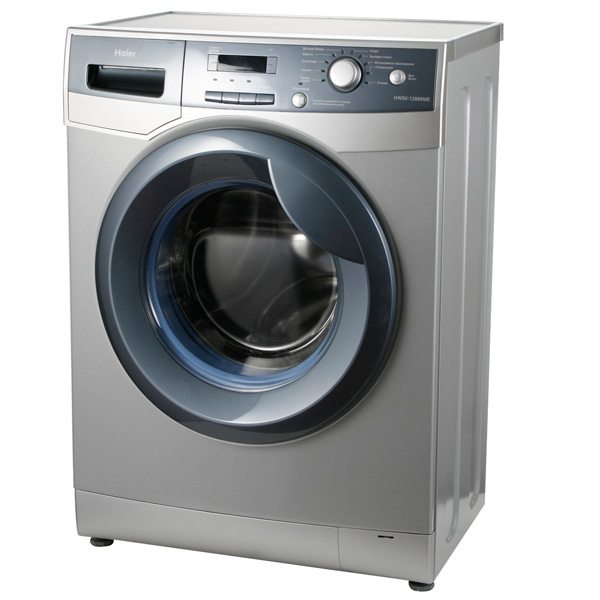
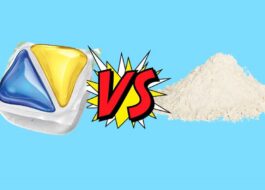


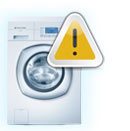
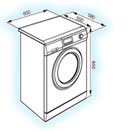


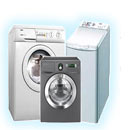
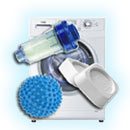



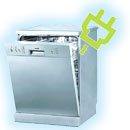
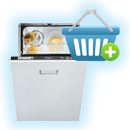

Add a comment